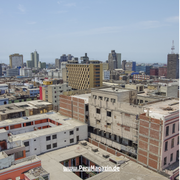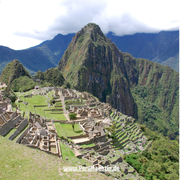Simón Bolívar, also known as the "Liberator," was a prominent 19th-century Latin American leader and statesman who played a central role in the independence movement in South America. Bolívar fought successfully for the independence of several South American countries from the Spanish colonial empire and is now revered as one of Latin America's most important historical figures.
biography
Simón Bolívar was born on July 24, 1783 in Caracas, Venezuela. He came from a wealthy Venezuelan family and received a comprehensive education that exposed him to the ideas of the Enlightenment and the Revolution. Bolívar became politically active early on and campaigned for the independence of Latin America from Spanish rule.

role in Peru
Having already contributed significantly to the independence of Venezuela, Colombia and other South American countries, Bolívar also played a significant role in Peru's independence movement. He led successful military campaigns against Spanish troops and was instrumental in liberating Peru from Spanish rule.
Bolívar was appointed President of Peru in 1824 and worked to consolidate independence and create a united and independent South American nation. However, his presidency in Peru lasted only three years as he faced political intrigue and challenges that threatened the country's stability.

Political legacy
Often considered one of the fathers of Latin American independence, Simón Bolívar is an iconic figure in the region's history. His ideas and visions of freedom, unity and self-determination have had a lasting impact on the political landscape of Latin America. Bolívar's dream of a unified Latin American nation may not have been fully realized, but his legacy lives on in the ideals of independence and national sovereignty.
Cultural heritage
Simón Bolívar is important not only as a political leader but also as a cultural icon. His name and legacy are present throughout Latin America, from monuments and streets to institutions and organizations dedicated to his legacy. Honored in art, literature and music, Bolívar remains an inspirational figure for generations of Latin Americans.





